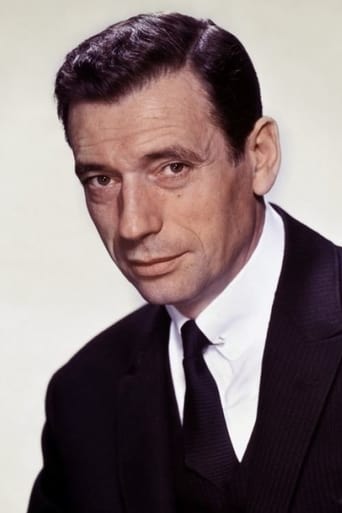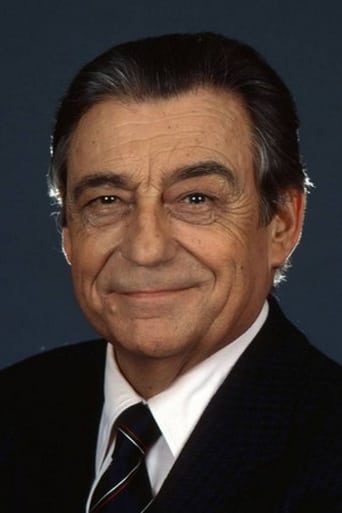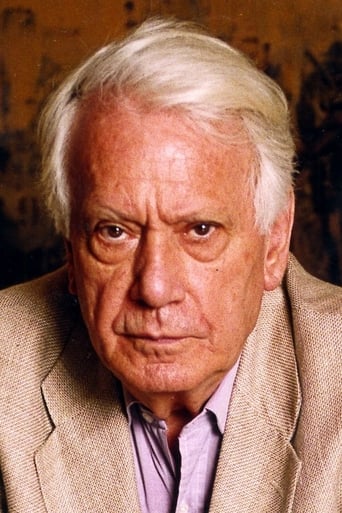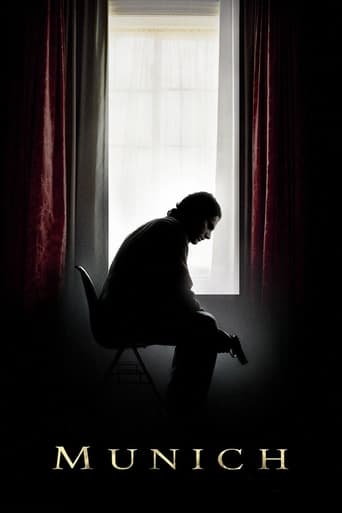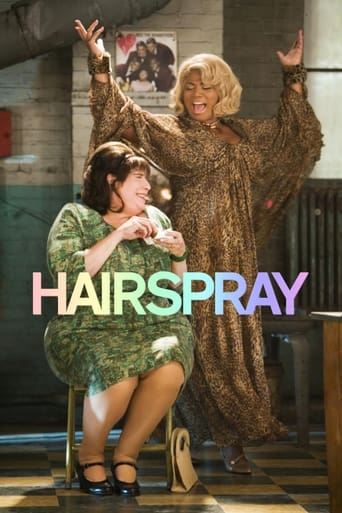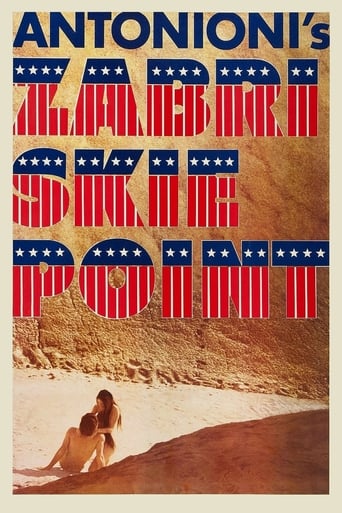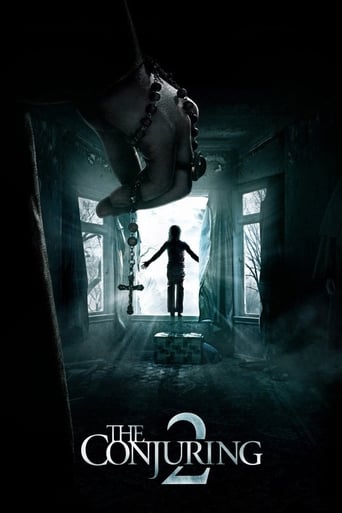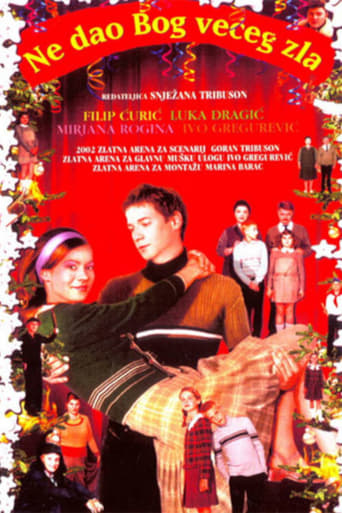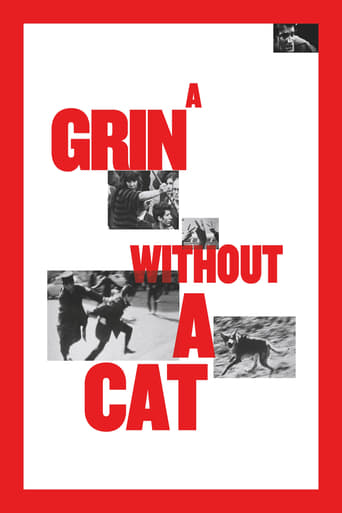
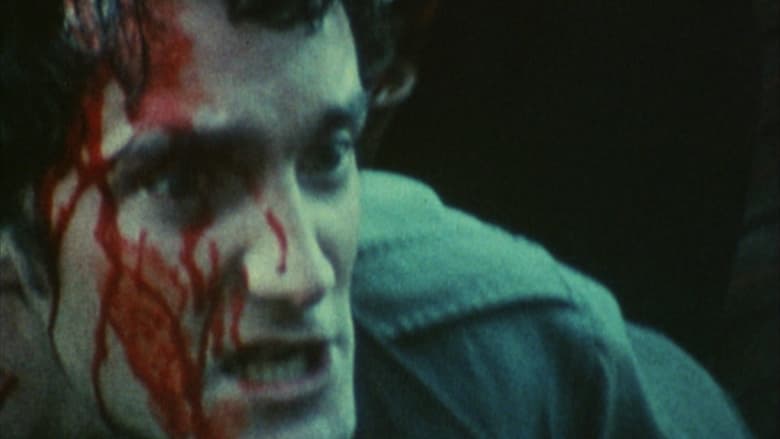
A Grin Without a Cat (1977)
French essay film focusing on global political turmoil in the 1960s and '70s, particularly the rise of the New Left in France and the development of socialist movements in Latin America.
Watch Trailer
Cast
Similar titles
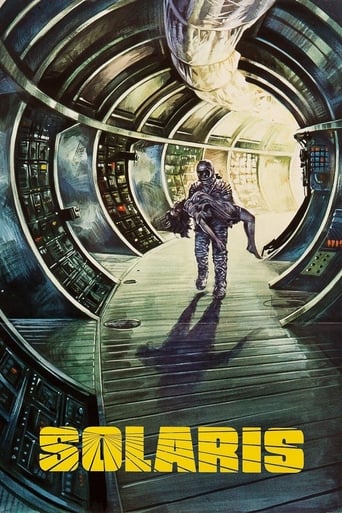
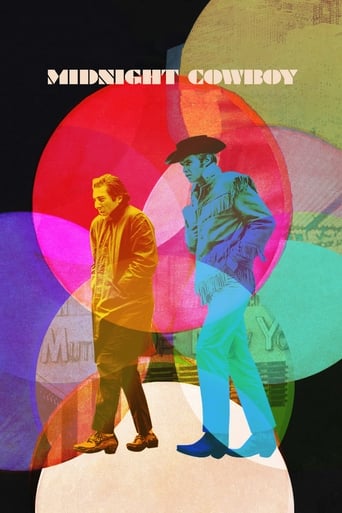
Reviews
Excellent adaptation.
Don't listen to the negative reviews
There is, somehow, an interesting story here, as well as some good acting. There are also some good scenes
The movie's neither hopeful in contrived ways, nor hopeless in different contrived ways. Somehow it manages to be wonderful
Although made when the period it covered had barely ended, Marker's doc is a superb, incisive film history of the short but eventful period of Third World Revolution and the New Left. He doesn't attempt to explore all the ideological, sectarian byways of the time, but to make us understand what it felt like, and why people involved believed so fervently that they were making history. He also shows us how it all came unraveled, thanks to domestic repression and political fakery in the developed countries and brutal intervention in the developing.One of the final clips (if memory serves) is most telling: Salvador Allende, months before his violent overthrow, delivering an electrifying speech to Chilean factory workers, urging them to ... accept layoffs and pay cuts. That's what it came down to, unfortunately: a boxed-in socialist president, doing his opponents' dirty work even as they prepared to murder him.Why Soderbergh? I just saw his marvelous, two-part "Che," and couldn't help but wonder if Marker's film was on his mind when he made it. Although a fiction film with actors, it also puts you close to the action and makes you feel what it was like to be taking part in 1) the momentous Cuban revolution and 2) the bitter failure of the Bolivian insurgency. Rise and fall, very much like the elation and then the dead-end that Marker gives us. Along the way, Soderbergh provides snapshots of his main character (now in black and white) giving speeches, interviews, explaining himself and his cause to American and UN audiences who couldn't be farther from the events Che was caught up in. The revolution is televised. Marker does the same thing with some of the footage he found, and interestingly, another Cuban revolutionary--Castro--was his charismatic star.One fine filmmaker paying tribute to one of the medium's greatest, perhaps? But see "Grin Without a Cat," and ask yourself why so few directors have any notion of the medium's potential.
This is a film montage, a sweeping documentary of the political movements and personages in the 1960's and 1970's, a stirring and engrossing narrative of those turbulent times. Many of the faces and persons in this film will be unfamiliar to American viewers. This should not be a deterrent to purchasing and viewing this documentary. The film documents events of a very important time politically and socially. 1968 represented the fulcrum of when the post-WWII structure crumbled and fell apart. New political alliances were being made, and many of the post-WWII leaders -- de Gaulle, Nixon, Mao -- either fell from grace or were on the downward path. On one side were the new generation of students, on the other were the establishment political leaders. The urgency of the student leaders are clearly apparent in the film, as is the paralysis of the Old Guard. Stuck in the middle is the working class, divided to whom they should support. In this respect, it does not matter that the student revolts are given a French perspective. The dilemma faced by the world at that time was truly universal.Chris March -- who passed away recently in July 2012 -- allows the newsreels and the events and persons in the footage speak more or less for themselves. March adopts the approach taken in an earlier film about the Senate McCarthy Hearings of letting the newsreels tell the story. Here, while there is narrative it is kept to a minimum. The effect is dramatic.The film is long, 180 minutes, but the viewer will not notice the time passing. The film is divided into two parts. Part I is entitled, "The Fragile Hands." It contains archival images from the following: 1. Che Guevara, including interviews from American operatives responsible for assisting the Bolivian government to track and kill Che and his followers.2. Student demonstrations from Paris, London, Germany, the United States (including images from the Columbia University student demonstrations), but primarily French civil unrest; 3. Vietnam (definitely unembedded); 4. Chicago Democratic Convention demonstrations.These events are intermixed with the passionate political debate and commentary from French intellectuals, political leaders, and working class members.The historical figures depicted include momentary images of Salvador Allende; Pinochet; the Shah of Iran; Rudi Dutschke, a leader in the German student movement; Daniel Cohn-Bendit; and Fidel Castro.Part II is entitled "The Severed Hands." It contains archival footage of the following events: 1. The Russian invasion of Prague. The prominent features of this treatment are the poignant images of young Prague students pleading with their equally young Soviet soldiers to leave the city and a filmed statement of Fidel Castro, who, while giving lip service to his political support of the invasion followed with a vehement denunciation of the illegality of the act.2. The Mexican Student riots of 1968.3. The Olympics, Mexico, 1968.4. China, the Cultural Revolution.5. The Watergate Hearings.6. The 1967 March on the Pentagon and subsequent police riot.7. Paris Student street demonstrations of May 1977.The historical figures shown include Salvador Allende (prolonged footage of his speeches); Richard Nixon; Jacques Mitterand; George Pompidou; Fidel Castro; For those unfamiliar with the faces and events, this film should be considered a historical document, an accurate recordation of political events from across the world.While there were cultural differences, the revolutionary furvor, both in Continental Europe was the same and very evident in this film.For those who lived during those times or in those events, it will doubtless bring back memories. In either case, it is required viewing.
I know that I am supposed to like this film. Unfortunately, as it is almost strictly for the political converts, I didn't.It is basically a collection of unused film footage from the late 60s and early 70s, showing significant moments in the leftist revolution, and how they dropped the ball, i.e. a "grin" without a cat. Yawn! Watching home movies of a leftist movement that compromised itself out of existence is not very satisfying.Film students may find appreciation of this work, but after watching Marker's most famous creation, "La Jetée", I expected more.Despite the fact that it was reworked, it just didn't measure up to my expectations.
As always Marker give us a breathtaking beautiful movie to shake our minds and think about the world around us. Its sad to realize through the images that even when the movie is about the history of 50 years back now, the ideologies, the problems and the unfairness of the world remains pretty the same. The compilation of images, documents, videos, interviews is excellent. How can Marker be everywhere and always in the right moment? Just because is Marker I guess. Excellent movie for people of any age or nationality in the mood of caring about the society and enjoying Marker's mastery using the video as a real communicator of deep thoughts.
